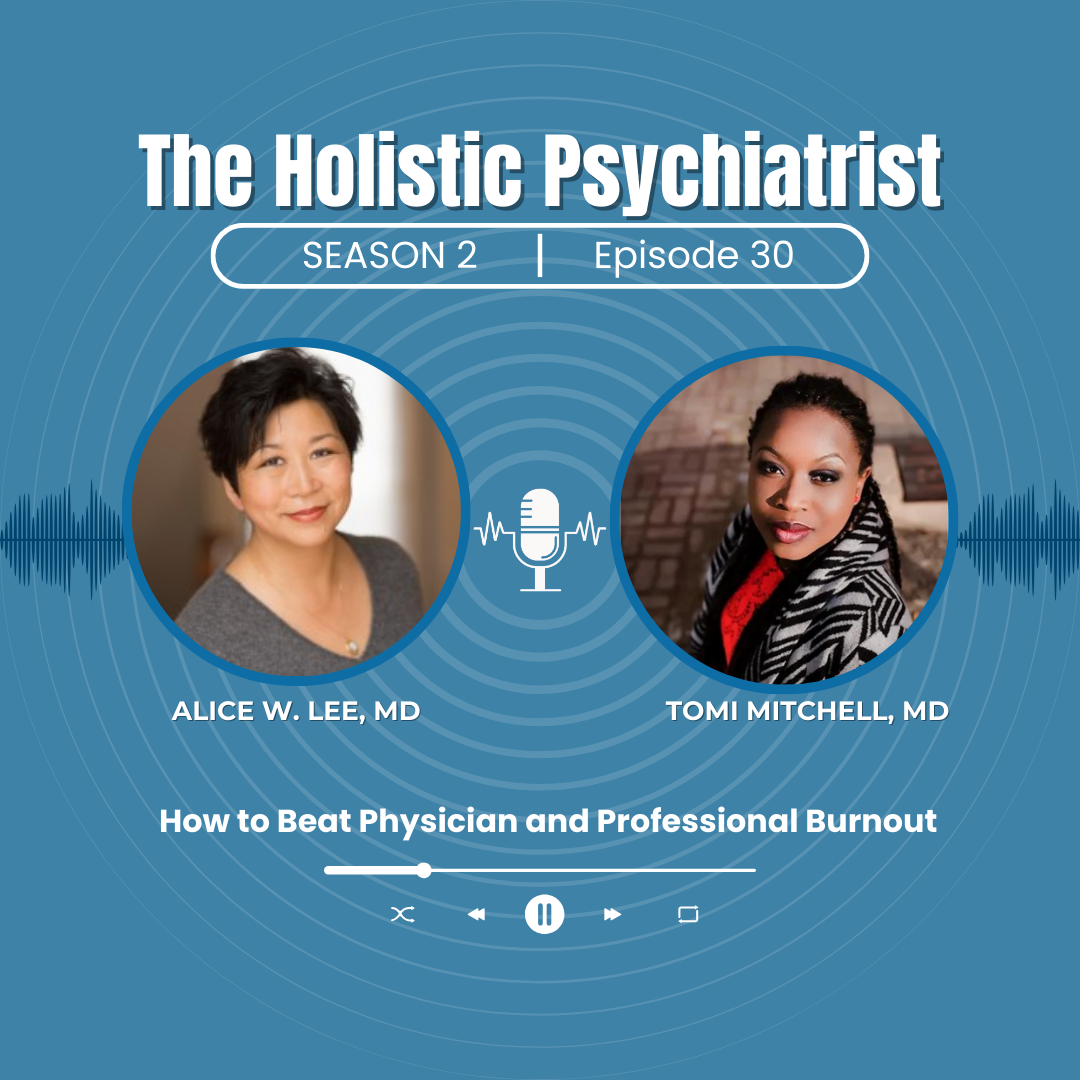How to Beat Physician and Professional Burnout
Tomi Mitchell, MD
New Author Interview
Thursday, October 10, 2024
Issue #242
Hello there!
Join me for a second podcast with Dr. Tomi Mitchell, filled with wisdom, humor, laughter, and support.
In this podcast, we explore ideas in her new book, The Soul-Sucking, Energy-Draining Life of a Physician: How to Live a Life of Service Without Losing Yourself.
Over the years, Dr. Mitchell has learned how to identify and address work-related hazards to shield people from burnout and to help people create a vibrant, fulfilled life.
In this fun, profound, practical, and informative podcast, Dr. Mitchell helps us avoid the emotional and psychological pitfalls found at work. This book isn’t just for physicians; it’s for all individuals struggling to overcome burnout and wanting to thrive.
Have a wonderful week!
How to Beat Physician and Professional Burnout
Tomi Mitchell, MD
New Author Interview
Click here to listen to the podcast episode
Click here to watch the YouTube Episode
Be sure to subscribe!
Just recently, I shared an article from the Washington Post with Dr. Tomi Mitchell about a young ophthalmology resident training at George Washington University who died by suicide at the age of 33.
His final words to his family and the medical institution concluded with:
"'I hope that an effort can be made to understand, support, and mentor the residents rather than simply to assess and drive them toward their highest potential as doctors.
To be clear, there are other people at real risk here at GW.'
He signs off with kind words for his friends and mentors:
'Thank you so much for being there for me. I wish you all the very best.
Sincerely,
Will West'"
The article states, "In interviews with The Washington Post several residents at George Washington, who spoke on the condition of anonymity because of fear of retaliation, described feeling trapped in a stressful environment where some degree of depression seemed almost normal, causing doctors to go through the motions, lose interest in hobbies and count the minutes until they could leave the clinic to go home and be alone."
Dr. Mitchell and I know all too well the combination of factors that drive tough, smart, hard-working physicians to suicide. We see how medical institutions take advantage of doctors' innate desire to serve, please, and excel in their work, driving them to the very brink of, and even beyond, endurance.
The article was particularly relevant to me because, from Dr. Will West's background given in the article, he must have belonged to The Church of Jesus Christ of Latter-Day Saint (LDS, Mormon), a religion I grew up with in Utah and am very familiar with.
He served an LDS mission and climbed mountains. He was a strong, intelligent, courageous, resilient person who overcame many challenges. The religious institution he grew up in viewed life's challenges as spiritual opportunities for growth and believed in eternal consequences for actions committed in the one life we are given. It is not a religion that believes in reincarnation and multiple chances to redo one's life.
In my opinion, the stressful (often inhumane) work pressures and milieu found at George Washington University are not only associated with Dr. West's suicide but are often typical of medical training programs.
This is why Dr. Mitchell's book is relevant to our times. It is time for medical institutions and administrators to create fair, humane, healing, and supportive medical training programs and medical systems--systems that treat doctors (and patients) as human beings and not as financial profit.
During the podcast, we cover important questions such as:
Why is the relationship with the self the most crucial part of the Burnout Triad, and how does it influence our worldview?
How does Dr. Mitchell’s book address the issue of physician burnout differently from other resources on this topic? What unique perspective or approach does she offer?
How does the book address the concept of work-life balance for physicians?
What are the three E’s and why are they important?
What’s one lesson or piece of advice from Dr. Mitchell’s book that she wished she had known earlier in her career?
I hope you'll find this podcast helpful in your relationship with work and supportive of your desire to create a happy, healthy lifestyle.
If you like this podcast, please give it a 5-star rating and share this with others! Thank you!
For more about Dr. Alice W. Lee, please visit:
Website: www.holisticpsychiatrist.com
More stories and insights: Holistic Articles
ouTube: The Holistic Psychiatrist
To schedule consultations or appointments, call Dr. Lee's office at 240-437-7600
Dr. Lee is located in downtown Salt Lake City, Utah.
To reach Dr. Tomi Mitchell:
Instagram: https://www.instagram.com/drtomimitchell/
Website: https://www.holisticwellnessstrategies.com/
LinkedIn: https://www.linkedin.com/in/drtomimitchell/
Podcast: https://podcasts.apple.com/ca/podcast/the-mental-health-wellness- show/id1579108575
Twitter: https://twitter.com/DrTomiMitchell
Facebook: https://www.facebook.com/DrMitchellHWS
Threads: https://www.threads.net/@drtomimitchell
Clubhouse: https://www.clubhouse.com/@drtomimitchell
The content provided by this podcast is for informational purposes only and has not been approved by the U.S. FDA. This podcast is not intended to provide personal medical advice, which should be obtained from a medical professional.


